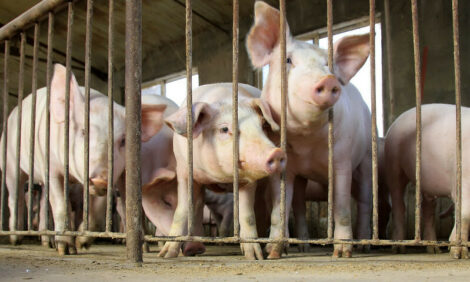



Defra puts a stop to rainy day ringfencing
UK - Red tape and interference are threatening the pig industry's Climate Change Levy scheme, which so far has successfully helped pig producers cut energy costs.|
NPA is active on members' behalf in Brussels & White-hall, and with pro-cessors, supermarkets & caterers – fighting for the growth and pros-perity of the UK pig industry. |
- In a surprise volte-face, Defra has ruled that producers cannot after all bank their energy savings against a rainy day, unless they are prepared to undergo an uneconomic verification process.
- And in a double whammy, the department has also decided to review current energy saving targets - which producers fear will lead to higher targets being set.
Since April 2001, pig and poultry farmers have been able to register for 80 percent discount on Climate Change Levy in return for agreed improvements in energy-efficiency over a ten-year period.
The NPA climate change group, chaired by Hugh Crabtree, has had its time cut out persuading some producers to remain in the scheme, because of the amount of paperwork involved.
These latest developments are unlikely to make the group's task easier, even though - as Hugh Crabtree has pointed out many times - reducing energy use on pig units can mean significant savings.
Defra originally agreed that producers who achieved greater cuts in CO2 emissions than required by the scheme's milestone targets, could ringfence their surplus and use it at the next milestone assessment.
But Defra has now altered its stance. It says surpluses can only be ringfenced if they are 'verified' - independently audited. "The cost of verification makes ringfencing uneconomic except for very large surpluses," says Nick Bird, a member of the NPA climate change group.
"If a producer had a ten tonne surplus at the last milestone, and is ten tonnes short at the next milestone, the ten tonne surplus cannot now be used, unless it has been verified. Since verification is so expensive, it would be far cheaper to buy ten tonnes for the deficit, and forget about the previous surplus."
The NPA climate change group is not unhappy about the implicit demise of individual ringfencing because it prefers a pool approach to ringfencing -- but it is concerned that the rules have been changed in an apparently arbitrary manner.
"For the majority of pig producers, this 'clarification' by Defra has no impact since most surpluses at the 2002 milestone were thrown into the group pot and few members of the scheme ringfenced a surplus," said Nick Bird.
"However, it means any members who fail to meet their 2004 milestone should be prepared to buy carbon to make up for the shortfall, whether they have a ringfenced surplus or not."
The only way that unverified surpluses can be used now, is within the NPA pig sector pool - that is, against deficits of other producers in the scheme. But sector surpluses cannot be carried over from one milestone review to the next.
The background to the introduction of the pig (and poultry) climate change schemes is that In April 2001, government introduced the Climate Change Levy, a tax on energy use for all businesses.
Some business sectors were given the opportunity to receive discounts on the levy in return for meeting agreed energy reduction targets. The pig and poultry industries were included because of their involvement with the Pollution Prevention and Control (IPPC) regulations.
Agreed target energy reduction for climate change scheme members in the pig sector, for the ten-year period, was 16 percent. The target was based on how much potential existed for realistic energy savings.
The target is set over a ten-year period with five two-year milestones to be met. The pig sector was successful in meeting its first milestone target.
As long as the pig climate change group meets its target overall, a poor performing individual site still qualifies for the discount.
If, however, the pig sector failed to meet its next milestone target - which is due this year - then it would be necessary to look at each individual site and determine which sites had made the necessary effort to reach the target and which had not.
Although ultimately the discount could be withdrawn, there is no intention to make farmers give back the discount they have claimed previously.
Source: National Pig Association - 4th Febuary 2004






